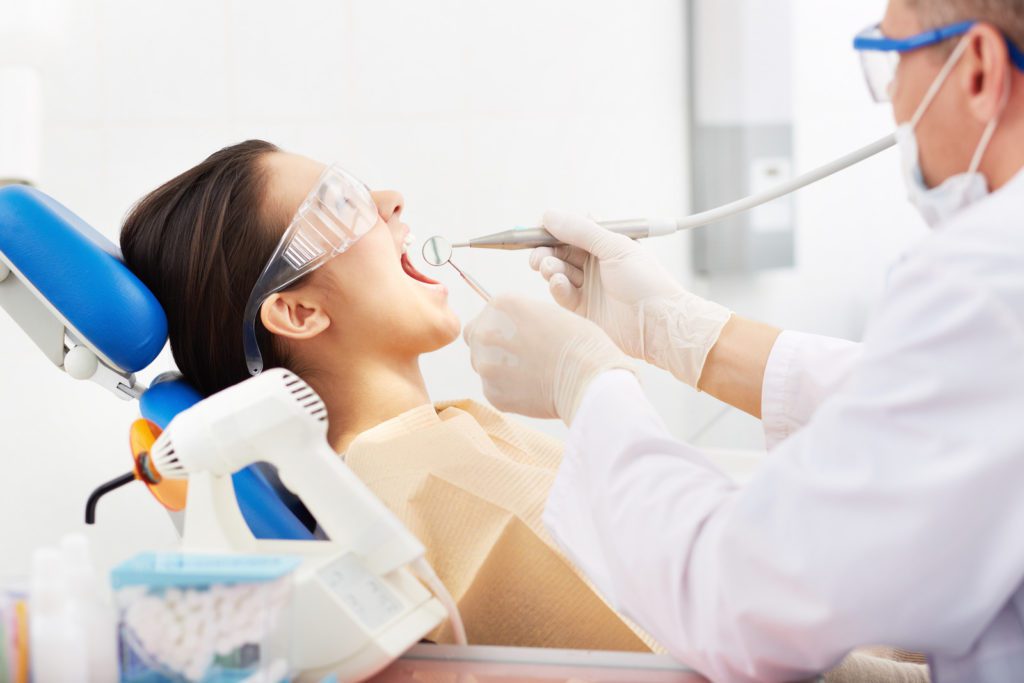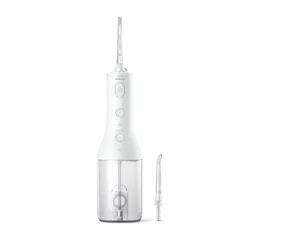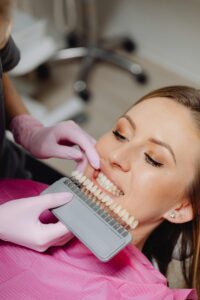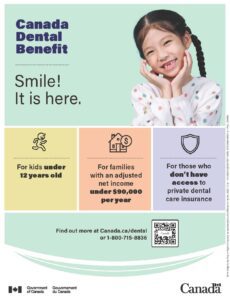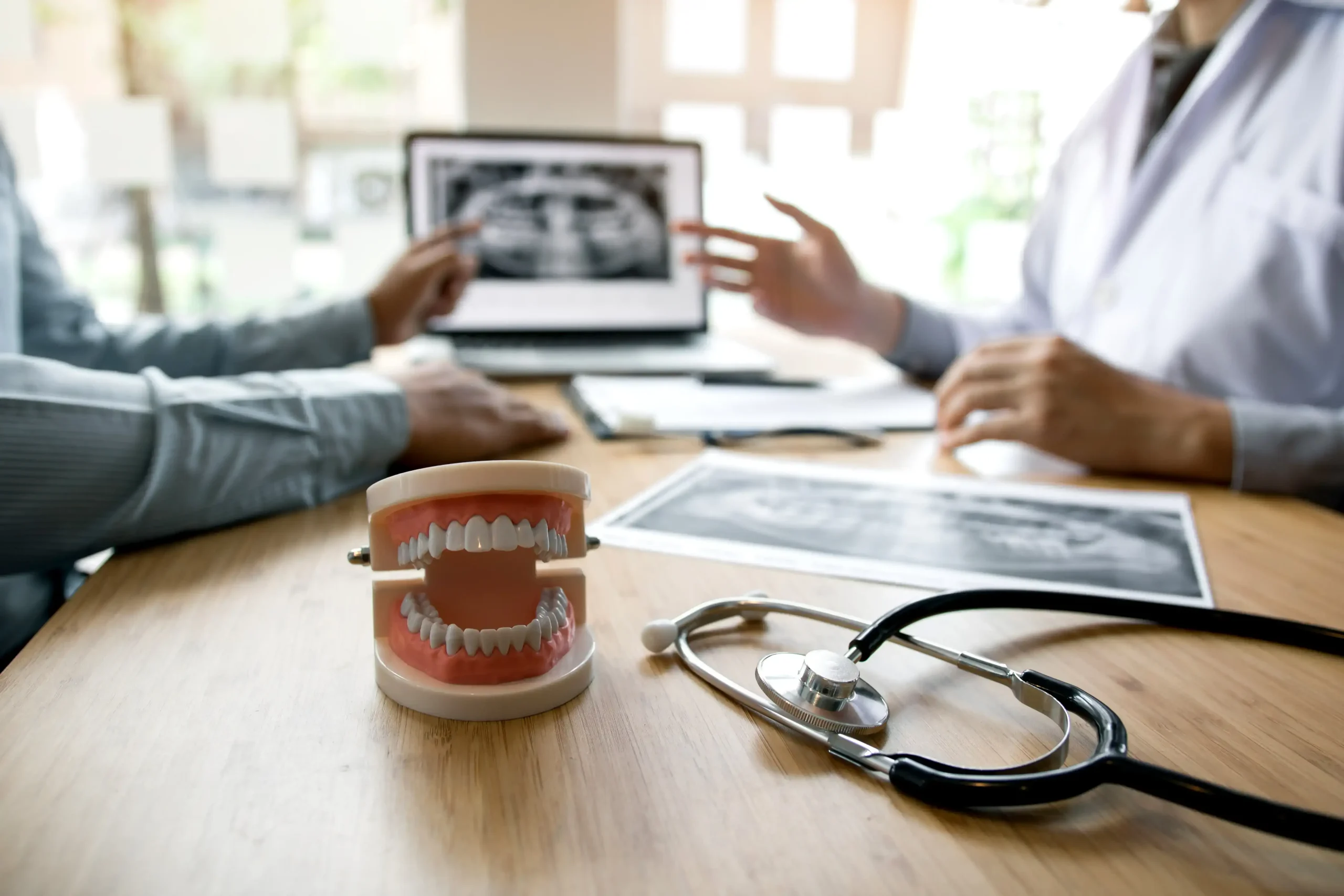A dentist specializes in oral health, treating and preventing dental issues. They offer routine care, emergency dental care services, and aesthetic treatments.
The dental profession encompasses a wide array of services aimed at ensuring optimal oral health for all ages. Dentists diagnose and manage oral diseases, perform cleanings, fill cavities, extract teeth, and offer advice on proper brushing and flossing techniques. Regular dental visits are crucial not only for maintaining healthy teeth and gums but also for early detection of potential problems such as tooth decay, gum disease, and oral cancer.
By prioritizing preventative care and implementing cutting-edge technology, dentists play a pivotal role in safeguarding one’s overall well-being. Trusting in a skilled dentist paves the way for a healthy smile and contributes significantly to good systemic health.
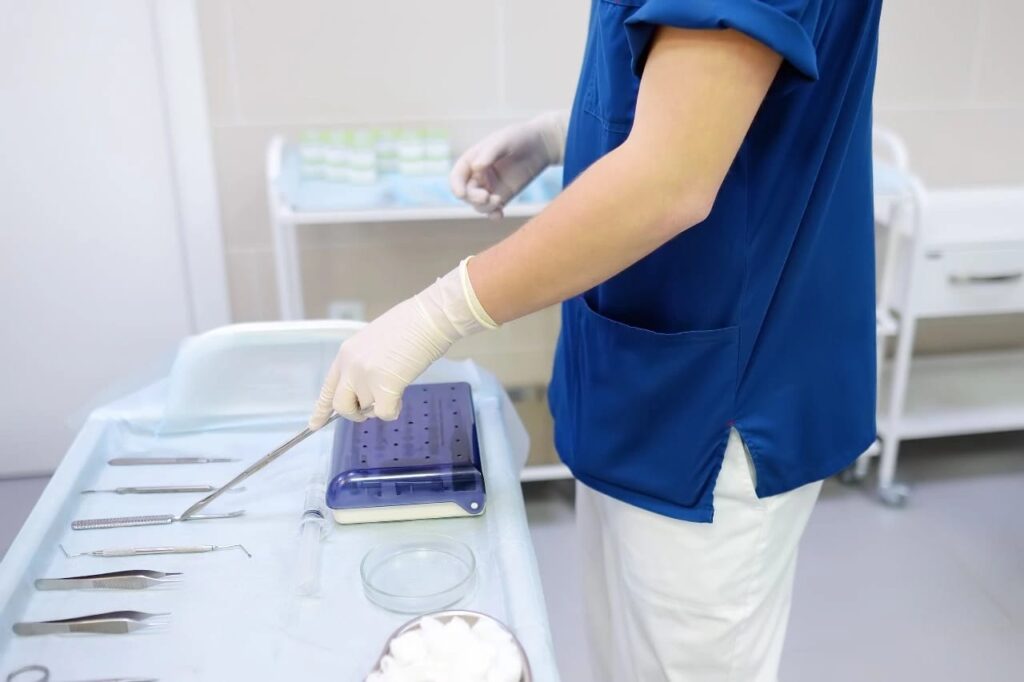
The Importance Of Regular Dental Checkups
The importance of regular dental checkups cannot be overstated. Routine visits to your dentist are crucial for maintaining not just oral health but also play a significant role in your overall well-being. These checkups are not just about preventing cavities; they’re about managing the health of your teeth and gums, diagnosing conditions before they become severe, and even detecting diseases that may affect other parts of your body. Let’s dive into the reasons why keeping that dental appointment is vital.
Advantages Of Preventive Dentistry
Preventive dentistry is the cornerstone of ensuring a healthy mouth.
- Minimize Plaque Build-up: Regular cleanings remove the buildup of plaque and tartar that routine brushing can miss.
- Protect Against Gum Disease: Cleanings and checkups can prevent gum disease, which can lead to early tooth loss.
- Maintain Overall Health: Dental health is connected to cardiac health, diabetes management, and more.
Cost-effective Measures
Scheduling regular visits to the dentist can save money in the long run.
- Avoid Expensive Treatments: Catching problems early on means less costly treatments are required.
- Manage Minor Issues: Small cavities can be filled before they become root canals or require crowns.
- Insurance Benefits: Many insurance plans cover preventive care, making checkups an affordable choice.
Early Detection Of Dental Issues
Spotting dental problems before they become serious is one of the most significant benefits of regular checkups.
- Cavities: Catching tooth decay early means easier and more effective treatment.
- Oral Cancer Screening: Routine visits often include screenings for oral cancer, which is critical for early intervention.
- Gum Health: Monitoring gums for signs of periodontal disease can prevent irreversible damage.
Role Of Dentists In Preventive Care
Dentists are not just ‘tooth doctors’; they are essential providers of preventive care services.
- Educate Patients: Dentists provide instructions on proper brushing, flossing, and nutrition for optimal dental health.
- Tailored Dental Plans: They devise personalized care plans to meet each patient’s unique dental needs.
- Innovative Techniques: Professionals use the latest in dental technology and methods to prevent diseases and maintain oral health.
Understanding Different Types Of Dental Specialists
Maintaining a healthy smile, understanding the different types of dental specialists and their roles is crucial. Each specialist brings a unique set of skills and services designed to address specific oral health needs. From general cosmetic dentistry to more specialized areas, this guide will help you navigate the world of dental care professionals.
General Dentists
General dentists are the primary dental care providers for patients of all ages. They are responsible for diagnosing, treating, and managing overall oral health care needs.
Overview Of Their Services
- Routine cleanings and examinations
- Preventive care to avoid cavities and gum disease
- Fillings, root canals, and extractions
- Crowns, bridges, and veneers
Importance Of Regular Visits
Regular visits to a general dentist are essential for maintaining dental health. These visits allow for early detection and treatment of potential issues, preventing them from escalating into more serious problems.
Orthodontists
Orthodontists specialize in correcting irregularities of the teeth and jaw. They are experts in treating misaligned bites and straightening teeth.
Corrective Treatments
- Braces, both traditional metal and clear aligners
- Retainers for maintaining teeth positions post-treatment
- Corrective jaw surgery in collaboration with oral surgeons
Benefits Of Orthodontic Care
Orthodontic treatments lead to better oral health, improved ability to chew and digest food, and a more aesthetically pleasing smile.
Oral Surgeons
Oral surgeons handle complex dental issues that require surgical intervention. They work with soft and hard tissues of the oral and maxillofacial areas.
Surgical Procedures
- Wisdom tooth extractions
- Dental implants
- Corrective jaw surgery
- Tumor removal in the oral cavity
Cases Requiring Oral Surgery
Patients might need oral surgery for impacted teeth, facial pain, TMJ disorders, or after facial trauma. Oral surgeons also handle cases that require sedation beyond what general dentists can provide.
Technologies Transforming Modern Dentistry
The world of dentistry is experiencing a technological revolution, changing the face of patient care and treatment outcomes. From precise diagnostics to innovative treatment methods, modern dental clinics are embracing an array of groundbreaking technologies. These advancements not only enhance the patient experience but also streamline dental procedures, ultimately leading to improved oral health. Let’s explore the significant tech trends that are shaping the future of dentistry.
Digital Dentistry Advancements
Digital dentistry is at the forefront of transforming traditional dental practices. By leveraging digital and computer-based technologies, practitioners achieve greater accuracy and efficiency. Electronic health records, digital X-rays, and intramural scanners are examples that allow for better patient management and diagnosis.
3d Imaging And Printing
The integration of 3D imaging and printing in dentistry has been a game-changer. This technology aids dentists in creating precise models of a patient’s dentition, which is integral for implant planning, orthodontics, and reconstructive surgery. These detailed visualizations allow for personalized treatment planning and improved patient outcomes.
Use Of CAD/cam Technology
Computer-Aided Design (CAD) and Computer-Aided Manufacturing (CAM) technologies have revolutionized the creation of dental restorations. CAD/CAM enables the design and production of dental crowns, veneers, inlays, onlays, and bridges in a single visit, significantly reducing the waiting time for patients.
Tele-dentistry
Tele-dentistry offers a convenient solution for remote consultations, follow-ups, and preliminary assessments. This digital approach to dental care ensures continuous patient engagement and helps maintain oral health, especially for those with limited access to in-clinic services.
Remote Dental Consultations
Alongside tele-dentistry, remote dental consultations provide a platform for dentists to diagnose and offer professional advice without the need for a physical appointment. This service is particularly beneficial during times when mobility is restricted, such as during a health crisis or for individuals in remote locations.
Impact On Access To Care
The adoption of advanced technologies in dentistry positively impacts access to care. By reducing the geographical and logistical barriers, more individuals can receive timely and effective dental treatments, enhancing the overall public oral health profile.
Laser Dentistry
Laser dentistry uses precise and powerful light beams to perform a variety of common dental procedures. This technology is particularly useful for contouring or reshaping gums, whitening teeth, and removing overgrown tissues. It provides a less invasive, more comfortable experience for patients.
Minimally Invasive Procedures
Modern dental technologies often lead to more minimally invasive procedures. With advanced imaging and laser technology, dentists can target specific areas without affecting surrounding tissues, reducing recovery time and postoperative discomfort.
Precision In Dental Treatments
Across the board, technological innovations contribute to greater precision in dental treatments. Enhanced digital imaging and the use of robotic assistance in some cases ensure treatments are executed with exactness, improving success rates and patient satisfaction.
The Role Of Nutrition In Dental Health
Understanding the role of nutrition in dental health is crucial as it goes beyond good oral hygiene practices. A balanced diet plays a significant part in maintaining a healthy smile. The connection between what we eat and how it affects our teeth cannot be overstressed. Nutrition impacts dental health from the development and maintenance of our teeth to the prevention of cavities and gum disease. Let’s dive into the various components of diet that are essential for optimal oral health.
Impact Of Diet On Oral Health
A well-balanced diet not only nourishes the body but also strengthens the teeth and gums. Foods that are high in sugars and carbohydrates can lead to the build-up of plaque, a sticky film of bacteria that causes tooth decay. Contrastingly, choosing healthier options like fruits, vegetables, and dairy can help neutralize these harmful acids and provide the necessary nutrients for oral health.
Foods Affecting Tooth Decay
Tooth decay is often the result of frequent consumption of certain foods. Sugary snacks, acidic fruits, and simple carbohydrates can accelerate tooth decay by supporting the growth of oral bacteria. To counteract this, integrating foods such as cheese, leafy greens, and nuts, which have decay-fighting properties, is beneficial.
Importance Of Proper Hydration
Hydration is key for maintaining a healthy mouth. Water helps in washing away food particles and decreasing the acidity of the mouth, which minimizes the risk of tooth decay. Moreover, fluoridated water strengthens the enamel and can be a line of defense against dental caries.
Role Of Vitamins And Minerals
- Vitamin A – Necessary for the maintenance of mucous membranes and soft tissue within the mouth.
- Vitamin C – Essential for gum health and the prevention of gingivitis.
- Phosphorus – Works closely with calcium to fortify teeth.
Nutrients For Healthy Gums
Healthy gums are foundational for strong teeth. Nutrients like vitamin C and omega-3 fatty acids are vital for preventing inflammation and supporting the structural integrity of gum tissue.
Dental Benefits Of Calcium And Vitamin D
Calcium and vitamin D are pivotal for healthy tooth structure and bone density. Dairy products, fortified plant milks, and sunlight are excellent sources of these nutrients. They facilitate the remineralization of enamel and support the bone that houses the teeth.
Healthy Habits For Strong Teeth
- Eating a balanced diet rich in fruits, vegetables, lean proteins, and whole grains.
- Limited snacking between meals to decrease acid exposure.
- Choosing water or milk over sugary drinks.
Proper Hygiene Practices
Regular brushing and flossing are necessary to remove the plaque that can harbor bacteria leading to tooth decay and gum disease. Combining this with a balanced diet enhances overall dental health.
Avoiding Harmful Substances
Avoid substances like tobacco and excessive alcohol, which can lead to a range of issues from stained teeth to oral cancer. Incorporating a diet low in sugar and acids can greatly reduce the risk of dental problems.
Emergency Dentistry: What To Do In Dental Emergencies
When unexpected dental issues arise, knowing how to act can save your teeth and prevent further damage. In these moments, emergency dentistry becomes a vital service. This post will guide you through appropriate responses to dental emergencies, helping you to stay calm and informed when the pressure is on.
Common Dental Emergencies
Dental emergencies can range from a mild toothache to severe trauma. Common issues include lost fillings, chipped teeth, and gum infections. Understanding the variety of emergencies will help you to identify and react correctly to each situation.
Toothaches And Abscesses
These occurrences signal something is amiss with your oral health. Toothaches may indicate decay or infection, while abscesses can lead to more serious complications if not treated promptly. Immediate attention is crucial.
Broken Or Knocked-out Teeth
Injuries that result in broken or knocked-out teeth require swift action. Preserve any broken pieces or the whole tooth, if possible, in milk or a saline solution until you can see a dentist.
First Aid For Dental Emergencies
- Clean the area: Gently rinse the mouth using warm water.
- Control bleeding: Apply pressure with a clean piece of gauze or cloth.
- Reduce swelling: Use a cold pack on the affected area.
Steps For Immediate Relief
Take over-the-counter pain relief if necessary, but avoid applying aspirin directly to the gums or teeth. This can cause tissue damage and prolong your recovery.
Navigating Urgent Care Needs
If you’re in pain or have suffered dental trauma, don’t delay. Contact your dentist immediately. For severe cases, visit the emergency room.
Importance Of Having An Emergency Dentist
A reliable emergency dentist can make the difference between losing and saving a tooth. Moreover, having a plan before an emergency strikes can reduce stress and improve outcomes.
Locating Emergency Dental Services
Search ahead of time for dental services in your area. Know their hours and if they accept walk-ins or require appointments for emergencies.
Preparing A Dental Emergency Kit
Create a kit with items such as gauze, saline solution, a small container with a lid, ibuprofen, and contact information for your emergency dentist. Keep this kit easily accessible at home or in your car.
The Evolution Of Cosmetic Dentistry
Professional Cosmetic dentistry has revolutionized the way we think about our smiles. Through the years, it has transformed from a set of rudimentary procedures to a sophisticated field of dentistry that blends art with science. Innovations in technology and procedures have made it possible for almost anyone to achieve their dream smile. Here’s a glimpse into the aesthetic wonders of modern dentistry through its most sought-after treatments.
Popular Cosmetic Procedures
The realm of cosmetic dentistry dazzles with a varied array of procedures designed to enhance the smile. From teeth whitening to orthodontic corrections, patients can choose from multiple options to address their aesthetic concerns. Implants, crowns, and bridges are no longer solely about functionality but are also tailored to complement the natural beauty of a patient’s facial features.
Teeth Whitening Treatments
Teeth whitening stands out as one of the most accessible and transformative procedures in cosmetic dentistry. With options ranging from in-office treatments using high-concentration peroxide gels to at-home trays and strips, this procedure works wonders to remove stains and lighten the natural color of teeth.
Dental Veneers And Bonding
Dental veneers are thin, custom-made shells designed to cover the front surface of teeth, providing a look of symmetry and perfection. When combined with dental bonding, which uses tooth-colored composite resin to repair chips and gaps, these procedures dramatically alter the appearance of teeth, often with minimal invasion.
Impact Of Cosmetic Dentistry
Cosmetic dentistry impacts more than just the aesthetics of a smile. It holds the power to positively influence oral health by improving bite alignment and making cleaning easier. These enhancements, in turn, can lead to better overall health and well-being.
Boosting Confidence And Self-esteem
A radiant smile can significantly boost confidence and self-esteem. Many individuals report a surge in self-assurance and social engagement after undergoing cosmetic dental procedures. This emotional uplift often translates into personal and professional success.
Functional And Aesthetic Improvements
Beyond beauty, cosmetic dentistry offers undeniable functional improvements. Patients with cracked, worn, or misaligned teeth can experience enhanced functionality, such as improved chewing and speech, after receiving the appropriate cosmetic treatment.
Considerations Before Undergoing Cosmetic Procedures
- Evaluate your needs and desires for your smile
- Understand the longevity and maintenance required for procedures
- Assess your oral health to ensure suitability for cosmetic treatments
- Review the financial investment and available payment options
Discussion With Your Dentist
An open discussion with your dentist lays the foundation for a successful cosmetic dental journey. This collaboration ensures that the patient’s expectations align with achievable goals, considering the health, structure, and aesthetic of the existing teeth and gums.
Potential Risks And Benefits
While the benefits of cosmetic dentistry can be quite profound, it is crucial to understand any potential risks. Possible sensitivities, the need for retreatment over time, and the rare chance of procedural complications should be considerations weighed against the remarkable potential for an enhanced smile and improved quality of life.
Maintaining Oral Health For Different Age Groups
Maintaining oral health is a journey that evolves throughout a person’s lifetime. From the first baby tooth to the wisdom of a mature smile, each age group has unique dental needs and concerns. Understanding how to care for your teeth and gums at every stage can ensure a lifetime of bright smiles and healthy habits. Below we’ll delve into the specific needs and strategies that ensure optimal dental health for everyone from toddlers to seniors.
Pediatric Dental Care
Proper dental care begins with the very first tooth. Ensuring that infants and children receive the necessary attention paves the way for healthy teeth and gum development. Seeing a pediatric dentist helps identify any early issues that might affect a child’s long-term oral health.
Importance Of Early Childhood Dentistry
Early childhood dentistry is critical as it can foresee and prevent future dental problems. Dental professionals can offer guidance on cavity prevention, proper brushing techniques, and nutritional advice which contributes to healthy tooth enamel and gum maintenance.
Establishing Good Habits From A Young Age
Building a foundation of good oral habits early on is essential. Teaching children the importance of regular brushing and flossing twice a day instills a routine that sticks with them for life. Additionally, familiarizing youngsters with regular dental check-ups reduces anxiety associated with dentist visits.
Dental Health For Adults
As we transition into adulthood, lifestyles and habits can significantly affect oral health. Stress, smoking, and consumption of alcohol and caffeine can all pose risks. Adults must continue regular dental visits to detect potential problems like tooth decay or gum disease and seek prompt treatment.
Managing Oral Health Throughout Adulthood
Adulthood brings about different challenges for maintaining oral health. Situations like pregnancy, various medications, and health conditions can influence dental well-being. Regular oral hygiene routines and dental appointments are steps in the right direction for managing these effects.
Impact Of Aging On Dental Care
As we age, the mouth undergoes changes that can increase the risk of diseases. Conditions like dry mouth, wear of the tooth surface, and receding gums become more common. Recognizing these issues early, with the help of dental professionals, is key to preserving oral health in later years.
Geriatric Dental Care
Geriatric dental care requires a gentle and understanding approach. With some seniors facing issues like arthritis, it can be challenging to maintain proper oral hygiene. Dental professionals often recommend assistive devices and modified techniques to overcome these hurdles.
Special Considerations For Senior Patients
Senior patients may need specialized dental care due to various medical conditions and medication effects. A tailored approach for each individual recognizes the need for comfort and specialized attention, ensuring that they continue to value their oral health as a critical aspect of overall well-being.
Importance Of Dental Care For The Elderly
It’s crucial to understand that dental care for the elderly is not just about maintaining a pleasant appearance. Good oral health is essential for comfortable digestion, preventing infections, and maintaining quality of life. Regular check-ups can help the elderly retain their functionality and enjoyment of foods, contributing positively to their overall health.
The Future Of Dentistry: Innovations And Trends
The dentistry field is poised at an exciting juncture, with a wide range of technological advances and innovative trends shaping the future of dental care. These evolutions promise not only to enhance the quality of treatments but also to deliver a more personalized and comfortable patient experience. The emerging trends are a testament to the interdisciplinary collaboration across the technological and medical fields, aimed at optimizing oral health outcomes and ensuring the longevity of dental restorations.
Advancements In Dental Materials
Dental materials have undergone a revolutionary transformation, stepping beyond mere functionality to incorporate aesthetics and strength. The development of new composites, ceramics, and polymers means that today’s dental restorations can be more natural-looking and wear-resistant than ever before.
Biocompatible And Durable Materials
Emphasizing patient safety and long-term results, dentistry is witnessing a surge in the use of biocompatible and durable materials. Modern dental practices are moving towards materials that not only blend seamlessly with the body’s tissues but also endure the demanding conditions of the oral cavity.
Impact On Restorative Dentistry
These material advancements significantly impact restorative dentistry, providing enhanced solutions for fillings, crowns, and implants. Patients benefit from restorations that are more reliable and congruent with their natural dentition, translating to improved oral health and overall well-being.
Artificial Intelligence In Dentistry
Artificial Intelligence (AI) is set to redefine dental practices with smart diagnostics and predictive analytics. By harnessing vast datasets, AI can assist in diagnosing conditions early and formulating precise treatment plans.
Role In Diagnostics And Treatment Planning
AI’s role in diagnostics and treatment planning cannot be overstated. From analyzing X-ray images to suggesting optimum treatment pathways, AI enhances the capability of dental practitioners to deliver top-tier care with high accuracy.
Improving Patient Experience And Outcomes
The amalgamation of advanced materials and AI goes hand in hand to improve patient experiences and outcomes. Comfortable, quick, and less invasive treatments with successful long-term results are the new benchmarks in patient care.
Personalized Dental Care
Personalization in healthcare is a burgeoning trend, and dentistry is no exception. Personalized dental care means treatments are tailored to the individual’s genetic makeup, lifestyle, and preferences, ensuring a more effective and patient-centric approach.
Customized Treatment Approaches
With the rise of digital dentistry tools, customized treatment approaches have become more accessible. These tools allow for the design and creation of dental appliances and restorations that fit perfectly with the unique contours of each patient’s mouth.
Integration Of Technology For Patient Engagement
To further enhance patient engagement, dental practices are integrating technology into every step of the treatment process. This includes virtual consultations, digital previews of expected results, and interactive apps that help patients understand and manage their dental health.
Conclusion
Selecting the right dental care professional is crucial for maintaining a healthy smile. Trust a certified dentist to ensure your oral health is in top shape. Remember, regular check-ups can prevent future problems. Embrace the journey to a brighter, healthier grin with your chosen expert’s guidance.
Smile on with confidence!
